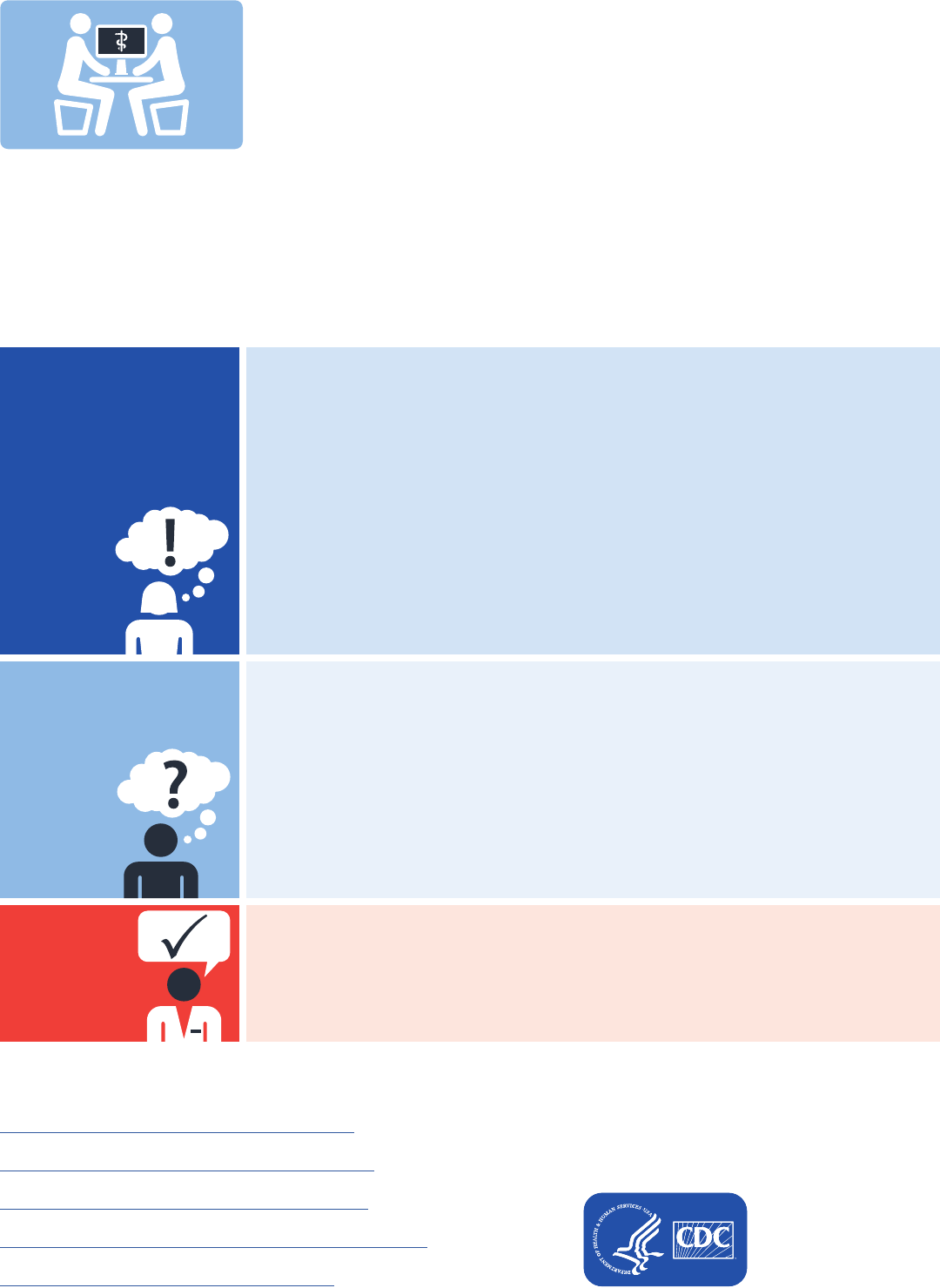
05/05/22
Remember:
Most HPV infections clear on their own within a year or two, but persistent
infections can lead to development of precancers or cancers, usually after
several decades.
HPV vaccination is not routinely recommended for adults 27-45 years of age.
HPV vaccine effectiveness is highest in people who have never had sex.
HPV vaccination prevents new HPV infection, it does not treat existing
HPV infection or disease.
Most adults who have had sex have been exposed to HPV before.
HPV vaccine effectiveness might be low among people with more risk factors
for HPV, such as having had sex with more than one person or having certain
immunocompromising conditions.
Consider:
At any age, having a new sex partner is a risk factor for getting a new HPV
infection. However, this is only one possible consideration for SCDM.
Adults with more HPV risk factors (for example, multiple previous sex partners
or certain immunocompromising conditions) might have been infected with HPV
in the past, so might have a lower chance of getting a new HPV infection in the
future.
Adults with fewer HPV risk factors (for example, few or no previous sex partners)
might not have been infected with HPV in the past, so might have a higher
chance of getting a new HPV infection from a new sex partner in the future.
If you
vaccinate:
If you and your previously unvaccinated adult patient decide to initiate HPV
vaccination, offer a 3-dose series of HPV vaccine at 0, 2, and 6 months.
If your patient is pregnant, delay HPV vaccination until after pregnancy.
HPV vaccination is safe, unless a patient had a severe allergic reaction after a
previous dose or to a vaccine component.
Shared Clinical Decision-Making
HPV Vaccination for
Adults Aged 27-45 Years
Shared clinical decision-making (SCDM) is recommended regarding Human papillomavirus (HPV)
vaccination for persons 27-45 year of age. Shared clinical decision-making recommendations are
intended to be flexible and should be informed by the characteristics, values, and preferences of the
individual patient and the clinical discretion of the healthcare provider.
HPV vaccination does not need to be discussed with most adults in this age group.
If you do decide to discuss HPV vaccination with an adult patient:
Additional Information:
Supplemental information and guidance for vaccination providers regarding use of 9-valent HPV:
www.cdc.gov/hpv/downloads/9vhpv-guidance.pdf
CDC Adult Immunization Schedule:
www.cdc.gov/vaccines/schedules/hcp/imz/adult.html
CDC/ACIP recommendations on HPV vaccination for adults:
www.cdc.gov/mmwr/volumes/68/wr/mm6832a3.htm
CDC/ACIP all current HPV vaccine recommendations:
www.cdc.gov/vaccines/hcp/acip-recs/vacc-specic/hpv.html
CDC HPV vaccination information for clinicians:
www.cdc.gov/vaccines/vpd/hpv/hcp/index.html
U.S. Department of
Health and Human Service
s
Centers for Disease
Control and Prevention
